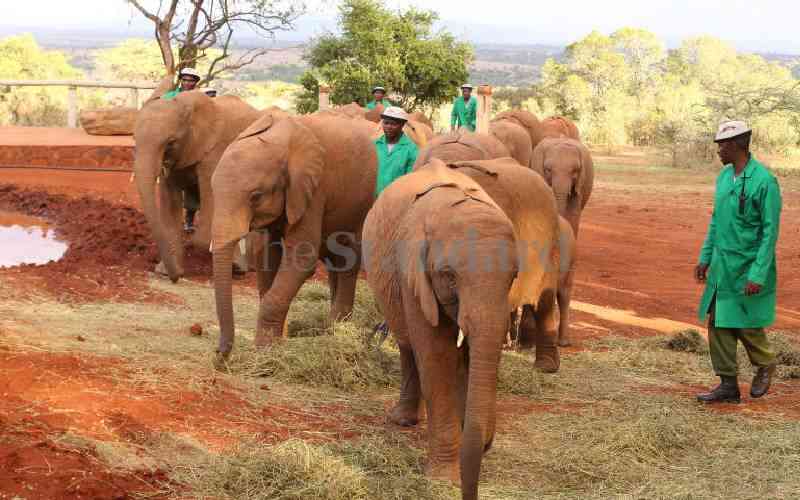NAIROBI: Because they are far bigger than humans, elephants should be dying of diseases like cancer more than humans. But the reverse is true — less than five per cent of elephants die of cancer, compared to 11 to 25 per cent in people. These were the recent findings of a study in the Journal of the American Medical Association.
What amazed me about this study is not really the staggering revelation. It struck me that such a huge wildlife study was conducted in the US, which is not even a natural home of elephants. It’s like a Kenyan university producing a monumental study on tigers.
There is absolutely nothing wrong with American scholars undertaking studies on tropical wildlife. But there is everything wrong with tropical countries in Africa not undertaking such studies on a regular basis.
Research is a costly affair and in a country like ours, where regrettably corruption seems to be the order of the day, wildlife research in particular, ends up being grossly underfunded. Because of this, we are increasingly ceding the intellectual space that defines the mysterious world of our wildlife.
We need to fund and engage in research that will not just resonate in university hallways but also in the urban streets and rural backyards.
Research that will tell us in clear, convincing terms why our wildlife species are incomparably more alive than dead.
Although tourism now trails tea as the highest foreign exchange earner, it was leading for many decades. Most tourists came and continue to arrive because of the allure of our wildlife. The academia and tourism sector however need to join hands and unearth specific data showing to what extent our wildlife makes a difference not just to the GDP but also to SMEs and livelihoods of specific communities.
For instance, we know the number of people who have lost their lives because of Tsavos elephants but we don’t really know the number of people who have jobs or who can go to college because of Tsavo’s elephants. To the extent that Kenyans who live adjacent to Tsavo are not necessarily conscious and appreciative of elephant benefits, their passion and efforts to conserve these gentle giants may be wanting.
If someone pollutes the Indian Ocean thus killing fish, coastal people will need no sensitising to protect the Ocean because they know and experience its benefits. Similarly, even as we sensitise our people on the importance of conserving wildlife, we must strive to vastly increase our knowledge of the wildlife that God blessed us with and share this knowledge with 40 million Kenyans who will then be passionate wardens of this wildlife. Think green, act green!
 The Standard Group Plc is a
multi-media organization with investments in media platforms spanning newspaper
print operations, television, radio broadcasting, digital and online services. The
Standard Group is recognized as a leading multi-media house in Kenya with a key
influence in matters of national and international interest.
The Standard Group Plc is a
multi-media organization with investments in media platforms spanning newspaper
print operations, television, radio broadcasting, digital and online services. The
Standard Group is recognized as a leading multi-media house in Kenya with a key
influence in matters of national and international interest.
 The Standard Group Plc is a
multi-media organization with investments in media platforms spanning newspaper
print operations, television, radio broadcasting, digital and online services. The
Standard Group is recognized as a leading multi-media house in Kenya with a key
influence in matters of national and international interest.
The Standard Group Plc is a
multi-media organization with investments in media platforms spanning newspaper
print operations, television, radio broadcasting, digital and online services. The
Standard Group is recognized as a leading multi-media house in Kenya with a key
influence in matters of national and international interest.









